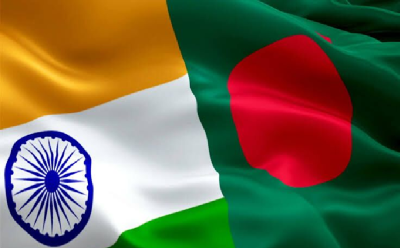Context:
The bilateral relationship between India and Bangladesh has undergone significant transformations over the years, marked by historical ties, periods of strain, and a renewed commitment to collaboration. The recent electoral victory of Bangladesh Prime Minister Sheikh Hasina for a historic fourth consecutive term has raised questions about the future trajectory of India-Bangladesh ties.
Historical Context and Flourishing Ties:
The foundation of India's relationship with Bangladesh was laid during the 1971 Bangladesh Liberation War, where India played a crucial role in supporting Bangladesh's fight for independence. However, relations faced challenges in the following years due to military regimes and issues such as boundary disputes and insurgency. The turning point came in 1996 when Sheikh Hasina assumed power, ushering in a new era of cooperation. The signing of a treaty on the sharing of Ganga waters set the stage for improved relations. Since then, the two countries have expanded cooperation in trade, energy, infrastructure, connectivity, and defense.
Economic Cooperation:
Bilateral trade between India and Bangladesh has experienced steady growth over the past decade, with Bangladesh emerging as India's largest trade partner in South Asia. Despite a temporary dip due to the pandemic and the Russia-Ukraine war, bilateral trade reached $18 billion in 2021-2022. India is also the second-largest trade partner of Bangladesh, with exports amounting to $2 billion in Indian markets. Both nations are actively exploring a Comprehensive Economic Partnership Agreement (CEPA), aiming to reduce or eliminate customs duties and simplify trade norms. This agreement gains significance as Bangladesh faces the loss of its Least Developed Country (LDC) status after 2026, prompting Dhaka to pursue a Free Trade Agreement (FTA) with India and engage with the China-backed Regional Comprehensive Economic Partnership (RCEP).
Infrastructure Development:
India has positioned itself as a "major development partner" for Bangladesh, investing significantly in infrastructure and connectivity projects. Since 2010, India has extended Lines of Credits worth over $7 billion to support various initiatives. Notably, the Akhaura-Agartala rail link, inaugurated by Prime Ministers Modi and Hasina, connects Bangladesh with the northeast through Tripura, providing India access to crucial ports in Bangladesh. This development is expected to boost small-scale industries and foster the development of Assam and Tripura. The energy sector collaboration is also notable, with Bangladesh importing nearly 2,000 megawatts of electricity from India. The Matarbari Port project, located near Tripura, holds strategic importance in establishing an industrial corridor linking Dhaka and northeastern India.
Points of Tension:
Despite the overall positive trajectory, certain contentious issues pose challenges to the India-Bangladesh relationship. The Teesta water dispute, centered around equitable distribution, remains a significant point of contention. The Rohingya issue, involving the peaceful repatriation of Rohingyas to Myanmar, adds complexity to the diplomatic landscape. Bangladesh seeks India's cooperation in influencing Myanmar, while India's ties with the Myanmar junta raise concerns. Cross-border terrorism and infiltration present additional threats to internal security. The rise of majoritarian forces in India has also introduced complexities, with Prime Minister Hasina expressing displeasure over attacks against Muslims and comments by Indian leaders on "illegal" immigrants.
Global Ties and Geostrategic Considerations:
The United States has expressed concerns about the democratic situation in Bangladesh, criticizing the Awami League government for perceived democratic backsliding. In 2021, the Biden administration imposed sanctions on a Bangladeshi anti-crime and anti-terrorism task force, citing human rights violations. The deepening relationship between Bangladesh and China is another factor shaping global dynamics. China's substantial investments in Bangladeshi infrastructure have raised eyebrows, with 12 highways, 21 bridges, and 27 power and energy projects being cited by the Chinese Ambassador to Bangladesh. Despite this, Prime Minister Hasina emphasizes her government's caution in its partnership with China.
Conclusion:
The growth of India-Bangladesh ties, marked by historical collaboration, economic cooperation, and infrastructure development, has been a noteworthy aspect of South Asian geopolitics. Prime Minister Sheikh Hasina's recent electoral victory underscores the continuity of a robust bilateral relationship. Economic ties have flourished, with trade reaching new heights and discussions about a Comprehensive Economic Partnership Agreement gaining momentum. Infrastructure projects, supported by India, are transforming connectivity between the two nations. However, challenges persist, ranging from the Teesta water dispute to the Rohingya crisis and concerns about democratic backsliding. The global context, with the United States' scrutiny and China's expanding footprint, adds further layers of complexity. The trajectory of India-Bangladesh relations remains dynamic, requiring careful navigation of geopolitical nuances and a commitment to resolving outstanding issues for the mutual benefit of both nations.
|
Probable Questions for UPSC Mains Exam
|
Source – The Hindu









